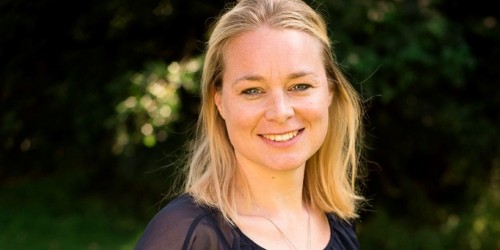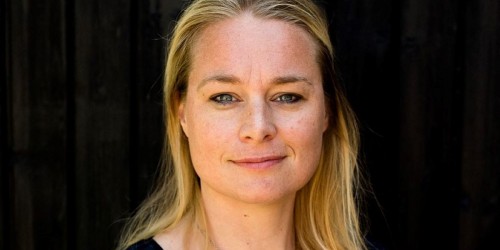
Lucy Fellow appointed to Brain, Security and Resilience chair
Dr Anne-Laura Van Harmelen promoted to full Professor at Leiden University
Dr Anne-Laura Van Harmelen publishes new paper and collaborates on two research projects
Dr Anne-Laura Van Harmelen, Royal Society Dorothy Hodgkin Fellow at the Department of Psychiatry, University of Cambridge and a Fellow at Lucy Cavendish College, has published ‘The Resilient Emotional Brain: A Scoping Review of the Medial Prefrontal Cortex and Limbic Structure and Function in Resilient Adults With a History of Childhood Maltreatment’ in Biological Psychiatry: Cognitive Neuroscience and Neuroimaging. The study was led by Dr Laura Moreno-Lopez, a Postdoctoral Affiliate at Newnham College, and Dr. Konstantinos Ioannidis a Consultant Psychiatrist and co-authored by Adrian Dahl Askelund, Alicia J. Smith and Katja Schueler from the Department of Psychiatry, University of Cambridge.
Childhood maltreatment (CM) is one of the strongest predictors of adult mental illness, although not all adults with CM develop psychopathology. In the paper, Anne-Laura and her team describe the structure and function of the emotional brain regions that may contribute to resilient functioning after CM. They review studies that report medial prefrontal cortex, amygdala, and hippocampus (limbic regions) structure, function, and/or connections in resilient adults (i.e., those reporting CM without psychopathology) versus vulnerable adults (i.e., those reporting CM with psychopathology) or healthy adults (those without CM and with no psychopathology). They found that resilient adults have larger hippocampal gray and white matter volume and greater connectivity between the central executive network and the limbic regions. In addition, resilient adults have improved ability to regulate emotions through medial prefrontal cortex–limbic downregulation, lower hippocampal activation to emotional faces, and increased amygdala habituation to stress. They highlight the need for longitudinal designs that examine resilient functioning across domains and consider gender, type, timing, and nature of CM assessments and further stressors to further improve our understanding of the role of the emotional brain in resilient functioning after CM.
For more information on the concept of resilience after childhood maltreatment please refer to Anne-Laura’s recent paper ‘The complex neurobiology of resilient functioning after childhood maltreatment’ was published in BMC Medicine.
Anne-Laura is also collaborating on the CORAL study with a team from the UK, Australia and the US. The project ‘The CORAL: COVID-19 Risks Across the Lifespan study’ is funded by the University of New South Wales COVID-19 Rapid Response Initiative and investigates how changes in everyday life as a result of Covid-19 have affected people’s wellbeing, their social connections and even their mental abilities.

Understanding the impact of COVID-19 on young people, adults, pregnant women and older people will help to predict what mental health support is needed now and in the future. The study ask participants to complete a detailed hour-long online survey at three different time points. The first time is when you first enrol in the study, then again after 3 and after 6 months. Participants are asked to answer a variety of questions relating to COVID-19, demographics (e.g., age), as well as questions on mental health and wellbeing.
Anne-Laura has also recently launched the RAISE study - Resilience After Individual Stress Exposure - with her team the risk and resilience group, a research group currently based at The University of Cambridge. The study will investigate how people respond to stress. Specifically, studying how key biological systems (HPA-axis, immune system) interact with the brain and social environment in order to facilitate resilient functioning after childhood adversities. Anybody meeting the eligibility requirements interested in taking part can contact the team on RAISE@medschl.cam.ac.uk
About Dr Van Harmelen
Anne - Laura van Harmelen is a Royal Society Dorothy Hodgkin Fellow and Senior Research Associate at the Department of Psychiatry, University of Cambridge and a Fellow at Lucy Cavendish College. She directs the Risk and Resilience Group. The group aims to investigate why some children and adolescents develop mental health problems, and others do not. Her work is funded by the Royal Society and MQ. From September, van Harmelen will take on a new role as Professor of Brain Safety and Resilience at the Department of Education and Child studies, Leiden University the Netherlands. Read Anne-Laura's full profile

Dr Anne-Laura Van Harmelen promoted to full Professor at Leiden University
Congratulations to Sarah, Research Fellow at Lucy, who shares her experiences of being a scientist

College Fellow Dr Anne-Laura Van Harmelen leads promising study on resilient functioning mechanisms